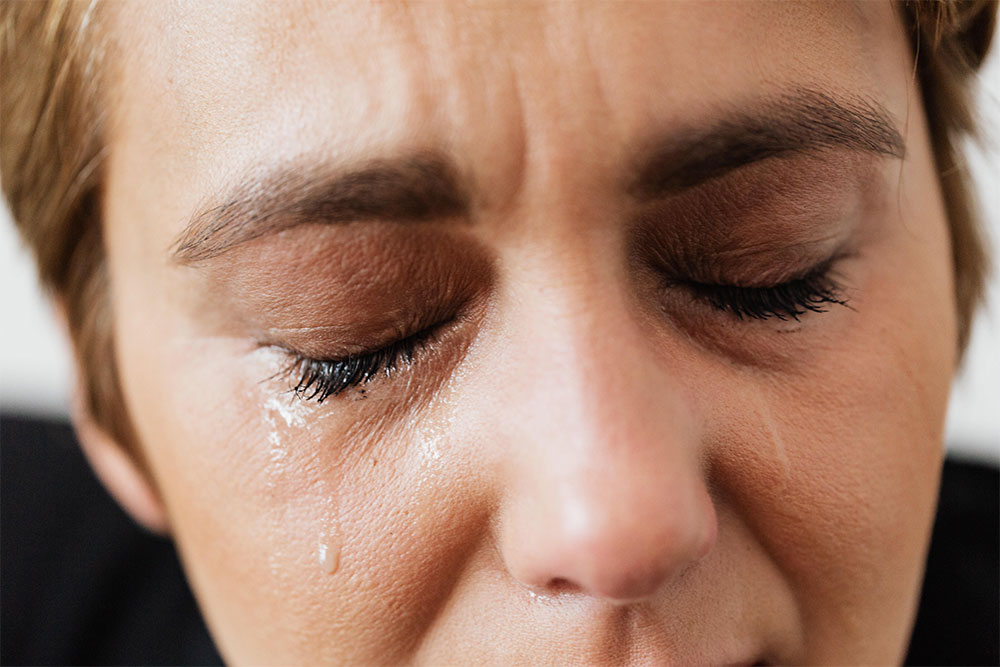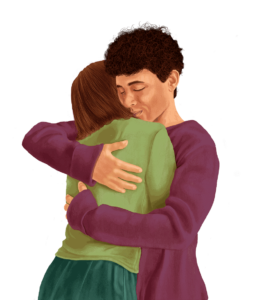Understanding Anxiety and Depression
Burdened by persistent worry, feeling of hopelessness, and a growing inability to cope with daily life? You’re not alone. Anxiety and depression are among the most common mental health disorders not only in America, but worldwide. In fact, more than one in 10 Americans are grappling with these conditions. Unearthing the best treatment for anxiety and depression is undoubtedly essential — not only for those immersed in its struggle, but also for loved ones hoping to understand and help.
At Core Recovery, we know firsthand the intricacies of these pervasive disorders. We understand that no two individuals are alike and therefore, treatment must be built on a foundation of personalization and empathy. Stemming from this understanding, treatment for depression and anxiety often converge, as they are frequently intertwined, each exacerbating the symptoms of the other. The question then arises, what is the best treatment for anxiety and depression that effectively addresses both conditions?
The Best Treatment Options Summarized:
- Psychotherapy – therapies like Cognitive-Behavioral Therapy (CBT) and Interpersonal Therapy can help individuals to reshape problematic thoughts and behaviors.
- Medication – selective serotonin reuptake inhibitors (SSRIs) and serotonin norepinephrine reuptake inhibitors (SNRIs) are commonly used.
- Lifestyle modifications – involvement in support groups, relaxation techniques, and regular exercise can play crucial roles in recovery.
- Alternative therapies – Art therapy including dance or movement therapy, and narrative therapy, offer unique avenues for expression and healing.
By acknowledging these options, you take the first significant step on the pathway to recovery. But choosing the best treatment for anxiety and depression is a process, not a one-time event. It’s a dynamic journey that requires understanding, patience, and support.
The Prevalence of Anxiety and Depression: A Growing Concern
In the United States, anxiety and depression have become the most common mental health disorders. In fact, these conditions often coexist, making the treatment process even more complex. They can pervade every aspect of life, disrupting work, school, and social interactions. Some individuals may be able to mask their struggles, performing daily activities and giving the impression that they are coping well. However, this doesn’t negate the fact that they are suffering and potentially in need of help.
Anxiety and depression are not just mental health concerns; they are associated with chronic physical conditions like heart disease and diabetes. Their presence can complicate treatment and worsen long-term outcomes, making it imperative to address them as part of a holistic healthcare approach.
Unfortunately, the reality is that only about one in three people who suffer from anxiety or depression seek treatment. This is particularly true for adolescents who are more vulnerable due to brain changes occurring during this stage of life. When left untreated, mental, physical, and behavioral health may continue to decline and potentially lead to more severe conditions.
At Core Recovery, we understand the prevalence and impact of these conditions and we are committed to providing the best treatment for anxiety and depression. We believe that everyone deserves access to quality mental health care, regardless of their circumstances.
Depression and anxiety are real illnesses that can be treated. The first step is recognizing the signs and seeking help. Our experienced team is ready to meet you wherever you are on your mental health journey and work with you to develop a personalized treatment plan.
If you or a loved one is grappling with these conditions, don’t hesitate to reach out to us. You’re not alone in this journey, and recovery is possible.
Diagnosing Anxiety and Depression: The First Step to Treatment
As with any illness, the first step to finding the best treatment for anxiety and depression begins with a proper diagnosis. This involves a comprehensive evaluation by a mental health professional who can accurately identify and understand the nuances of your symptoms.
At Core Recovery, our dedicated team of experts employs a compassionate, judgment-free approach to diagnosing mental health conditions. We understand that symptoms of anxiety and depression can manifest differently in each person, making personalized assessment crucial.
The Importance of Accurate Diagnosis
An accurate diagnosis is vital in designing a treatment plan tailored to your specific needs. Anxiety and depression can sometimes occur simultaneously, making it challenging to discern which set of symptoms is more dominant. In such cases, treating both conditions may be necessary.
For instance, if someone with severe depression is unable to start treatment for an anxiety disorder due to a lack of motivation or energy, it may be necessary to address the depression first. However, the goal remains to manage and reduce the symptoms of both disorders effectively.
Recognizing the Symptoms
Recognizing the signs and symptoms of anxiety and depression is a significant part of the diagnostic process. While these symptoms can vary from person to person, there are common indicators to look out for. These include persistent feelings of sadness, loss of interest in activities, excessive worrying, and physical symptoms such as fatigue or sleep disturbances.
If you’re uncertain about your symptoms, we offer a confidential quiz to help you determine if you should seek help. All responses remain confidential, and the goal is to assist you in taking that crucial first step towards recovery.
Our Approach to Diagnosis
At Core Recovery, we strive to identify the underlying issues causing your distress. We employ a combination of therapeutic practices, such as cognitive-behavioral therapy (CBT), trauma resolution, and mindfulness techniques, to help you understand and manage your symptoms better.
Our integrated approach focuses on the individual, ensuring that your unique needs are addressed as you embark on your recovery journey. We believe that understanding your condition is the first step to finding the best treatment for anxiety and depression.
If you’re struggling with anxiety or depression, remember, you don’t have to face it alone. Our experienced team is ready to help you regain control of your life and start your journey towards recovery. Reach out to us at Core Recovery today.
Medication as a Treatment Option for Anxiety and Depression
As part of our commitment to providing the best treatment for anxiety and depression, we at Core Recovery acknowledge the role of medication in managing these complex mental health conditions. Medication can alleviate symptoms, helping individuals engage more effectively in other forms of treatment such as psychotherapy. Here we’ll explore some of the most commonly prescribed types of medications for anxiety and depression: Selective Serotonin Reuptake Inhibitors (SSRIs), Serotonin-Noradrenaline Reuptake Inhibitors (SNRIs), Benzodiazepines, and other medications like Tricyclic Antidepressants (TCAs) and Beta-Blockers.
Selective Serotonin Reuptake Inhibitors (SSRIs)
SSRIs are often considered the first-line treatment for both anxiety and depression. These medications work by increasing the levels of serotonin, a key neurotransmitter that regulates mood and anxiety in the brain. While SSRIs can start to alleviate symptoms within a few weeks, they may take up to 6 weeks to reach their full effect. Common side effects can include restlessness and increased anxiety.
Serotonin-Noradrenaline Reuptake Inhibitors (SNRIs)
Similar to SSRIs, SNRIs work by increasing the levels of serotonin, as well as another neurotransmitter called noradrenaline. This dual action can be particularly helpful in treating both the physical and emotional symptoms associated with depression and anxiety. As with SSRIs, some individuals may experience increased anxiety and restlessness as side effects.
Benzodiazepines
Benzodiazepines are often used for their rapid relief of acute symptoms, as they help dampen the excessive activity of the nervous system, thereby reducing anxiety and increasing feelings of calm and relaxation. However, these are typically not the first line of treatment for depression.
Other Medications: Tricyclic Antidepressants (TCAs) and Beta-Blockers
TCAs are an older class of antidepressant medications that are typically used when other treatments have failed due to their potential side effects. Beta-blockers, on the other hand, are often used for managing physical symptoms of anxiety, such as rapid heart rate and trembling.
At Core Recovery, our approach to medication management involves evaluating your existing medication use to determine effectiveness and prescribing new medications that better fit your overall treatment program. We understand that each individual is unique, and what works best will depend on a variety of factors including your specific symptoms, overall health, and treatment objectives.
Medication is just one aspect of a comprehensive treatment plan for anxiety and depression. In our next section, we will delve into the role of psychotherapy as another crucial component in the journey to recovery.
Psychotherapy as a Treatment Option for Anxiety and Depression
Psychotherapy, also known as talk therapy, is a fundamental aspect of the best treatment for anxiety and depression. It allows individuals to express their feelings and thoughts in a safe, non-judgmental environment. At Core Recovery, we offer several types of psychotherapy, each with its unique approach and benefits.
Cognitive Behavioral Therapy (CBT)
CBT is one of the most effective forms of psychotherapy for anxiety and depression. It works by replacing negative and unproductive thought patterns with more realistic and useful ones. This involves taking specific steps to overcome anxiety and depression, often including facing one’s fears as part of the pathway to recovery.
This form of therapy has shown promising results, especially for healthcare workers coping with stress and anxiety due to the pandemic. Through CBT, patients learn to take control of how they interpret and deal with their surroundings, reducing stress and depression levels.
Exposure Therapy
Exposure therapy is another form of CBT that can be particularly effective for anxiety disorders. In this treatment, patients are gradually exposed to their fears in a controlled environment, helping them gain mastery over their anxiety. This method can be particularly effective when combined with other treatments like medication or relaxation techniques.
Psychodynamic Psychotherapy and Supportive-Expressive Therapy
These therapies focus on anxiety as an outgrowth of feelings about important relationships. They aim to understand and resolve these feelings, thereby reducing anxiety and depression.
Psychodynamic psychotherapy explores how unconscious thoughts and feelings from past relationships can influence current behavior. Supportive-expressive therapy, on the other hand, focuses on helping patients express their feelings and build supportive relationships.
At Core Recovery, our team of knowledgeable, caring, and professional psychiatric nurse practitioners, counselors, case managers, and personal treatment providers develop a customized treatment program to provide the best possible care.
The “best” treatment varies from person to person. While one individual might respond well to medication, another might find more success with psychotherapy or a combination of both. It’s essential to work with healthcare professionals to find the most effective treatment plan for you.
In our next section, we will discuss lifestyle modifications and alternative treatments that can also play a significant role in managing anxiety and depression.
Lifestyle Modifications and Alternative Treatments for Anxiety and Depression
In addition to medications and psychotherapy, there are several lifestyle modifications and alternative treatments that can be immensely beneficial for those seeking the best treatment for anxiety and depression.
Regular Exercise and Relaxation Techniques
Regular physical activity is a powerful mood booster. It aids in reducing symptoms of both anxiety and depression. This is because exercise triggers the release of endorphins, your body’s natural mood elevators .
Relaxation techniques, such as meditation and deep breathing exercises, can also help manage anxiety and depression symptoms. These practices encourage a state of relaxation, reducing stress and promoting mental well-being. They can be incorporated into your daily routine, helping you to remain calm and focused throughout the day.
Biofeedback
Biofeedback is a mind-body technique that involves using visual or auditory feedback to gain control over involuntary bodily functions. This could include gaining control over muscle tension, heart rate, or blood pressure. Studies have shown that biofeedback can be effective in managing various physical and mental health conditions, including anxiety and depression.
Vitamins and Supplements for Anxiety and Depression
Certain vitamins and supplements, such as B9 (folic acid) and B12, are thought to help alleviate symptoms of anxiety and depression . These vitamins aid in the metabolism of serotonin, a neurotransmitter that plays a crucial role in mood regulation.
However, consult with a healthcare provider before starting any new supplement regimen, as some can interact with medications or have side effects.
Art Therapy
Art therapy is another alternative treatment method that has shown effectiveness in managing anxiety and depression. This method encourages creative expression as a means to explore feelings, reconcile emotional conflicts, and foster self-awareness. At Core Recovery, we offer various art therapy techniques, including visual art therapy and music therapy, to help our clients express their feelings and cope with their symptoms.
In conclusion, the best treatment for anxiety and depression often involves a combination of medication, psychotherapy, lifestyle modifications, and alternative treatments. It’s crucial to remember that everyone is different, and what works for one person might not work for another. At Core Recovery, we are committed to helping our clients find the best treatment plan tailored to their unique needs and circumstances.
In the next section, we will delve into the role primary care providers play in treating anxiety and depression.
The Role of Primary Care Providers in Treating Anxiety and Depression
Primary care providers are often the first line of defense in identifying and managing mental health disorders like anxiety and depression. With an estimated 51.5 million adults in America living with any mental illness, primary care providers are pivotal in meeting the growing demand for mental health services.
Initial Assessment and Diagnosis
One of the fundamental roles of a primary care provider is to conduct an initial assessment and diagnosis of mental health conditions. They are equipped to recognize the signs and symptoms of anxiety and depression, and refer patients to specialized mental health professionals for further evaluation when needed. At Core Recovery, we work closely with primary care providers to ensure a seamless transition of care.
Pharmacotherapy Initiation and Management
Primary care providers may also initiate pharmacotherapy for mild to moderate cases of anxiety and depression. These professionals are skilled in identifying appropriate classes and agents for individual patients, initiating treatment, and managing medication titration and discontinuation. At Core Recovery, our medication management solutions can supplement the care received from primary care providers, ensuring our clients receive the best treatment for anxiety and depression.
Holistic Approach to Care
The best treatment for anxiety and depression often entails a holistic approach, considering the individual’s overall health and lifestyle. Primary care providers play a crucial role in this holistic care, recommending lifestyle modifications, and referring patients to psychotherapy or other behavioral interventions as needed. At Core Recovery, we embrace this integrated approach, offering a range of services from individual therapy to group counseling.
Bridging the Gap
Primary care providers are ideally positioned to bridge the gap between mental health professionals and patients. They can play a vital role in reducing barriers to access, providing routine screening for depression, and initiating treatment as needed. At Core Recovery, we value this collaborative approach and strive to work hand-in-hand with primary care providers to deliver the best care possible.
In the next section, we will discuss how to choose the best treatment for anxiety and depression, taking into account the unique needs and preferences of each individual.
Conclusion: Choosing the Best Treatment for Anxiety and Depression
Finding the best treatment for anxiety and depression can be a challenging task, given the unique nature of each individual’s experience and symptoms. What works best for one person might not be as effective for another. However, there are several guidelines that can help guide the decision-making process.
Consider a Combination Approach
Often, a combination of psychotherapy and medication proves to be the most effective approach. Cognitive-behavioral therapy (CBT) can help individuals to replace negative and unproductive thought patterns with more realistic and useful ones. On the other hand, medications like selective serotonin reuptake inhibitors (SSRIs) and serotonin norepinephrine reuptake inhibitors (SNRIs) can help to manage the symptoms of both disorders.
Personalize Your Treatment Plan
The most effective treatment plan is one that is tailored to the individual’s specific diagnosis and needs. This might involve treating one disorder before the other, depending on which one is causing the most distress. For instance, if an individual is highly depressed and lacks the motivation needed for anxiety treatment, it might be necessary to treat the depression first.
Seek Support
Support groups can provide a safe space for individuals to share their experiences and gain insights from others who have been through similar struggles. Relaxation techniques, meditation, and regular exercise can also be beneficial in managing symptoms of anxiety and depression.
At Core Recovery, our experienced team offers personalized treatment for anxiety and depression, meeting you where you are on your mental health journey. We understand that the path to recovery can be daunting, and we are here to support you every step of the way.
Consult a Mental Health Professional
If you’re struggling with anxiety and depression, consult with a mental health professional who can guide you towards the right treatment options. At Core Recovery, we can work with you to explore various treatment options and create a plan that suits your unique needs.
You don’t have to navigate this journey alone. Seeking help is a sign of strength, not weakness, and there are resources available to assist you in your recovery journey.





